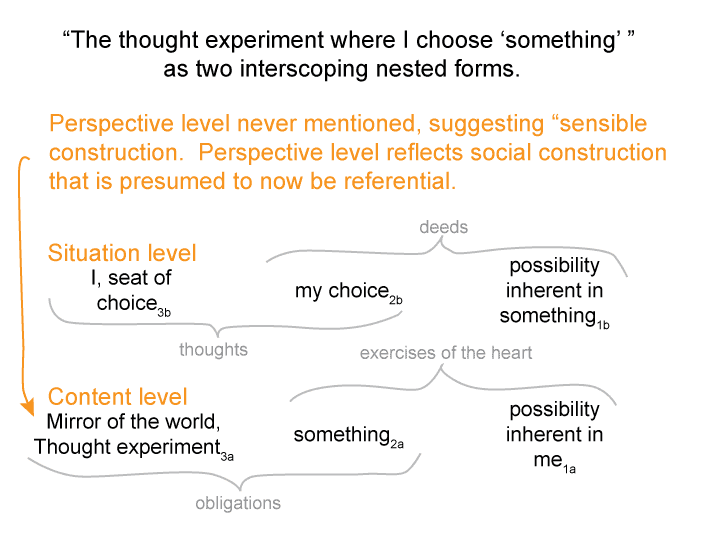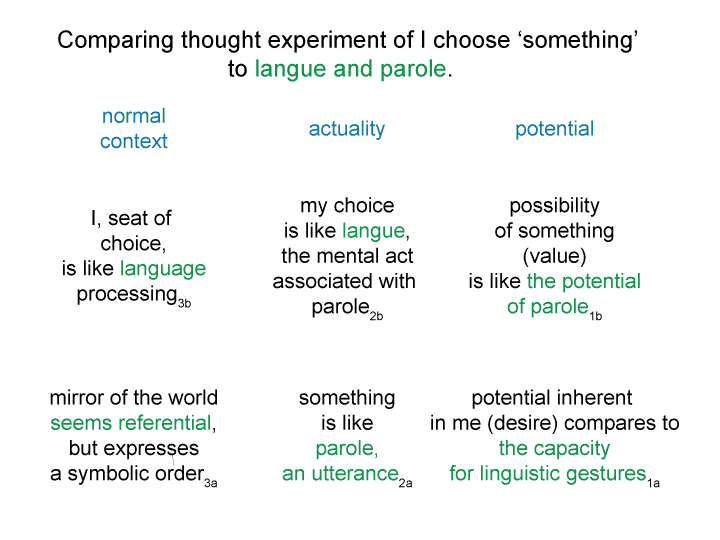[The mirror of the world3a reflects a symbolic order3a.
Responsibilities and words express the character of ‘a system of…3a’.
Correspondingly, the potentials within me1a are already refined, cut into interpellations, finite in number, because they well up in response to the normal context configured as ‘a system of…3a’.
Freedom and bondage express the character of ‘… differences1a’.
Both obligations and exercises of the heart share an actuality2a that corresponds to an utterance, emerging from and situating the potentials inherent in me.]


